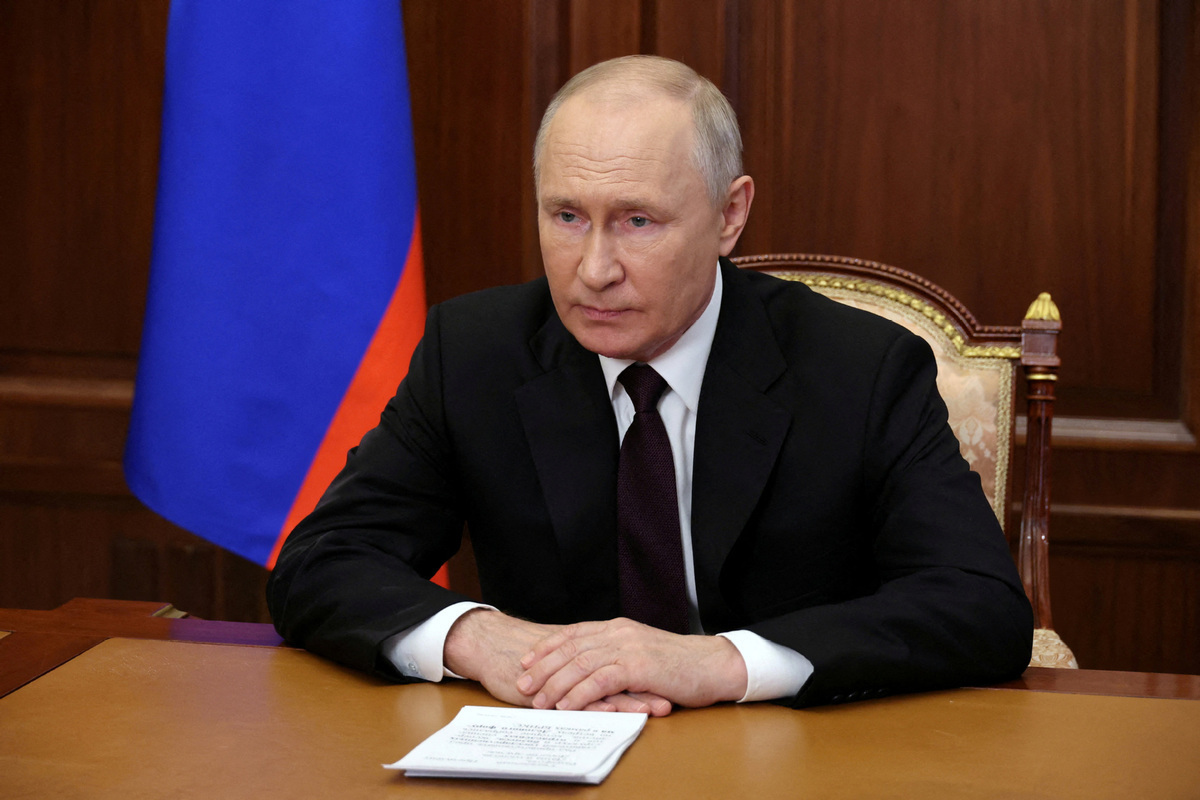Putin to run for top post in 2024 as independent


Russian President Vladimir Putin submitted documents to Russia's Central Election Commission on Monday to register as a self-nominated candidate in the 2024 presidential election.
"He submitted them," Kremlin spokesman Dmitry Peskov confirmed with Russian state media.
Putin, 71, who has been in the president or prime minister position for more than 20 years, announced in March he will seek another six-year term in an election he is expected to win.
The president will not run as a candidate for the ruling United Russia party, even though he has its complete support, but as an independent candidate, senior United Russia party official Andrey Turchak was quoted by RIA news agency as saying.
"More than 3.5 million party members and supporters will actively take part in the election campaign," Turchak said, noting that Putin was one of the founders of United Russia.
Under the current constitution of the Russian Federation, Putin is eligible to seek two more six-year terms after his current term expires next year.
Putin's supporters formally nominated him on Saturday to run in the 2024 election as an independent candidate.
Under Russian election law, nomination by a group of at least 500 supporters is mandatory for those not running on a party ticket. Independent candidates also need to gather at least 300,000 signatures of support from 40 regions or more.
The group that nominated Putin included top officials from United Russia, prominent Russian actors and singers, athletes and other public figures.
New restrictions
Putin's registration for the election came as the European Union Council adopted the 12th package of sanctions against Russia, according to a European Commission statement published on Monday, after Austria gave its final approval over the weekend.
The new sanctions target the lucrative diamonds industry, more than 140 officials and organizations, and closing loopholes that Moscow has used to bypass previous punitive measures, the statement said.
The import, purchase or transfer of Russian nonindustrial natural and synthetic diamonds and diamond jewelry will be banned starting Jan 1. The EU estimates Russia's diamond sector to be worth around $4.5 billion each year, The Associated Press reported.
The new round of sanctions also obliges EU companies to prohibit in their contracts the export of certain goods so buyers cannot sell them to Russia, particularly "sensitive goods and technology" that could be used by Russian armed forces in Ukraine.
Additional chemicals, lithium batteries, thermostats, certain electric motors that could be used in the manufacture of drones, and some machine tools and parts have been put on the EU's list of restricted items banned for export to Russia.

































